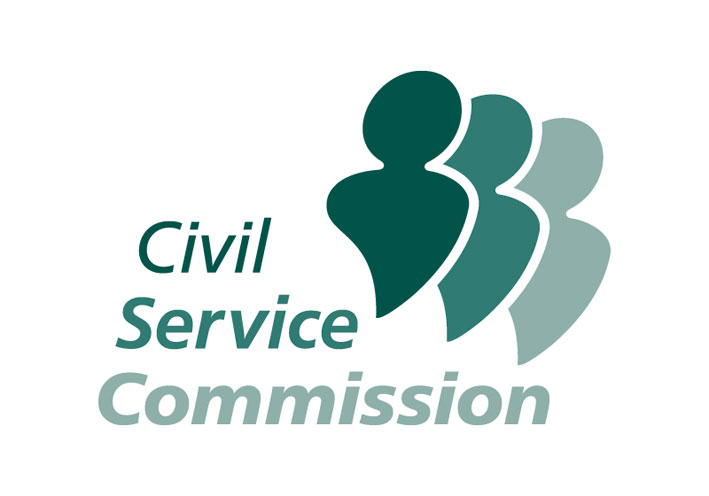Senior Civil Service leaders talk about disability
In our third blog in this series, Ben Merrick, Director, Overseas Territories Directorate, HM Commissioner for the British Indian Ocean Territory and HM Commissioner for the British Antarctic Territory, talks about his experience of working in the Civil Service.

About Ben
Ben was appointed Director of Overseas Territories at the Foreign & Commonwealth Office in August 2017. In that role, he holds office as Commissioner of the British Antarctic Territory and Commissioner of the British Indian Ocean Territory. Previously he was the Deputy Director of the Overseas Territories and has worked in the Ministry of Defence and Cabinet Office.
What do you think the civil service needs to do to attract more candidates with a disability into senior roles? What advice do you have for recruiters?
The Civil Service needs to continue on its path of having role models with disabilities in senior positions to demonstrate what is possible. It needs to set out in the publicity for a role the scope for operating at that level with a disability, ensure necessary workplace adjustments are made and maintain & increase targeted leadership support eg through the DELTA programme (part of the Future Leaders Scheme). Recruiters need to be very clear in their material about roles that the Civil Service is determined to ensure the recruitment process is accessible, the job itself and working environment are fully accessible, and make clear that they are very happy to discuss potential workplace adjustments etc with candidates. Line managers in particular need to make sure they have really thought about the requirements of a role, where the flexibilities are, and how they can make the environment as accessible as possible.
What could the civil service do better to attract and retain civil servants with a disability overall (at any level)? What do you see as the barriers?
On top of what I’ve said above, it’s about promoting aspirations of people at all levels and to ensure they feel that they can belong in the Civil Service and perform to their maximum extent. Although the Civil Service aims to get workplace adjustments in place, there are often practical barriers (eg around physical access or IT / assistive software) as well as attitudes about what is and isn’t possible from certain colleagues (and occasionally self-imposed limitations from disabled colleagues who may not know what is actually possible).
What has been your experience of reasonable adjustments and how have these helped you to do your job?
I’ve had wide experience. Many are in the very easy category, eg people telling me who they are rather than expecting me to recognise them, or the Permanent Secretary getting people to introduce themselves at meetings. Those have been straightforward, though partly related to my telling people from the outset about my situation and the changes I needed. Others have been more variable – IT provision in some departments has been very good and swift in terms of getting my assistive software on the system, but in other places it’s taken far longer - six months on one occasion and a year on another. This has a massive impact on one’s ability to work. For example, I currently have no ability to access Rosa as it doesn’t work with screen readers, so there is still work to do. Other issues have sometimes required me pushing, for example getting learning materials for a year-long financial course on CD-ROM, where initially the educational publisher claimed they weren’t available in soft copy until I pushed them very hard.
Have you seen good/bad examples of reasonable adjustments provided to disabled employees in the civil service?
Yes. As well as my own examples above, I’ve seen lots of adjustments provided to colleagues, including by the Civil Service Workplace Adjustments Service. Those have mostly been fine for the more straightforward issues, but I’m aware of some cases which have run on for many months. This is completely unnecessary and has left the disabled individual highly frustrated. Sometimes it may be unavoidable, but almost always it relates to excessive bureaucracy or line managers just not doing their jobs properly in moving things forward, or not being given sufficient support to know what to do.
What has been your personal experience of working in the civil service? What made a difference to you?
I have for the most part very much enjoyed all my various jobs working in the Civil Service. What’s made a difference to me is having important & fulfilling work where I can identify the difference I’m making, with a strong and supportive team, and having the IT and adjustments I need in order to operate properly.
Why is diversity particularly important at senior levels?
To slightly broaden the question, I think Diversity and Inclusion is important at all levels for moral and legal reasons, but also because it gives us better policy & delivery outcomes, improves our recruitment & retention and makes us more representative of the society that we serve. At senior levels, it’s particularly important because we shape the overall approach & culture of the organisation and provide a role-model for everyone.
What experiences did you have working at a senior level in the private sector? Are there lessons that the civil service can learn from the private sector in terms of recruiting disabled staff, provision of reasonable adjustments etc?
I haven’t worked at a senior level outside the Civil Service. However, I did work for six years for Childline in my spare time as a volunteer counsellor, as well as training new counsellors & occasionally managing shifts. The recruitment process was incredibly open – when I asked if my disability would be an issue they just said they were committed to making it work, and they made various small adjustments to the training etc to enable me to do it properly.
What drives and motivates you in your career?
It’s the ability to do important and interesting work which makes a difference. More recently, I’ve become particularly interested in leadership and role-modelling side of things, coaching and building capability in those coming up behind me, and seeking to really influence the culture of the whole Civil Service and promote our values.
What are your interests and hobbies outside work?
I spend lots of time with my kids (9 and 11) introducing them to the world, even if that’s been slightly curtailed this year. I’ve taken up running during lockdown after doing Couch to 5k at Easter and now do a lot. I also like reading and Scrabble (and some cooking) in such spare time as I have. Pre-COVID we also used to enjoy travel.

